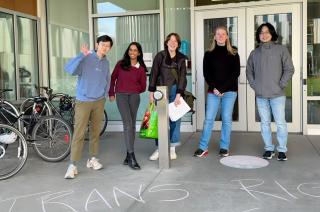Labour and employment law is increasingly failing to protect workers’ rights in the contemporary workplace. According to Professor Bethany Hastie, it is the growing precariousness of labour that is at the heart of this failure.
Professor Hastie defines precarious labour as work characterized by a combination of low wages, poor working conditions and a lack of job security, which may often be further impacted by discrimination and marginalization. There are many forms precarious labour takes, though she notes common challenges presented for labour and employment law in addressing precarious labour across a range of jobs and industries. These challenges point to a fundamental disconnect between the historical modes of employment upon which labour and employment laws were developed, and the current characteristics of many employment relationships. For example, a growing number of intermediaries in employment relationships can make it difficult to clearly identify and categorize employers and employees. Similarly, the increasing casualization of the labour force is creating a situation where more and more workers are practically, if not formally, excluded from core workplace rights and protections.
For Professor Hastie, this presents an acute and urgent problem to address. “Work is a fundamental part of most individuals’ lives,” she explains, “and it plays a very important role in fostering equality and justice in society. Making workplace rights more accessible and effective for workers in precarious jobs is the driving force behind my research. How can the law promote greater choice at and about work? How can the law better facilitate justice in the workplace? These are the questions I am exploring in thinking about how labour and employment law can reclaim its role in advancing equality and justice.”
To date, Professor Hastie’s research has focused substantially on migrant labour, and in relation to caregiving, agricultural work, and jobs in food services, retail and similar industries. Her forthcoming article “The Inaccessibility of Justice for Migrant Workers: A Capabilities-Based Assessment” argues that the regulatory structure of the Temporary Foreign Worker Programs creates a distinct dimension of precariousness for migrant workers, one which contributes to significant barriers in asserting workplace rights and seeking effective legal remedies in the face of rights violations at work. As Professor Hastie points out, constraints in accessing justice in the workplace are common for all kinds of workers in precarious jobs.
Her next project, funded by a UBC Hampton New Scholar Award, will explore complementary models of collective representation that could enhance access to justice in precarious workplaces. “This project aims to respond to the growing decline of formal unionization in Canada, and the noted barriers workers face – particularly in industries reliant on precarious labour – in achieving unionization in line with formal labour relations rules and models,” she explains. “Industries that are most in need of collective representation to improve wages, conditions and security of work, such as food services, retail, hospitality, and agriculture, are unable to access traditional labour relations regimes. These workers often experience greater labour inequality, and yet are unable to utilize collective representation as a means to access justice in the workplace.”
Professor Hastie points to the evolution of Supreme Court of Canada jurisprudence on collective bargaining and freedom of association as fertile ground for this project. “Arguably, these developments have created a strong legal basis for the protection of collective representation at work beyond formal labour relations models. My research will use this foundation to evaluate concrete options for complementary models of collective representation that are specifically targeted at addressing the particular issues and constraints faced by workers in precarious jobs,” she explains.
Ultimately, Professor Hastie sees her research as one piece of a much larger puzzle about how to create better conditions of justice and equality in society. The combination of British Columbia’s strong labour rights movement, coupled with Allard’s commitment to social justice, present the ideal space for her research to grow in a way that will make important connections with other pieces of that puzzle.

PROFESSOR BETHANY HASTIE
Bethany Hastie is an Assistant Professor at the Peter A. Allard School of Law, University of British Columbia. She initially joined Allard Law as a Lecturer in 2015, after completing her doctorate at McGill University. During her doctoral studies, she held a SSHRC Canada Doctoral Fellowship and an O’Brien Fellowship in Human Rights and Legal Pluralism, and was a member of the Centre for Human Rights and Legal Pluralism and Institute of Comparative Law.



